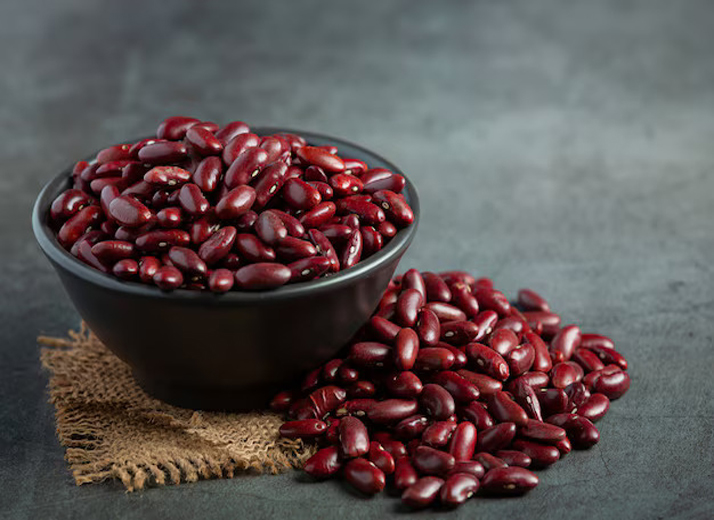Product
Kidney Beans (Rajma)

Send an Enquiry
Kidney beans, commonly known as Rajma in South Asia, are a popular legume recognized for their deep red color and kidney-like shape. Scientifically known as Phaseolus vulgaris, they are a variety of common beans originally native to Central and South America but now widely cultivated across the globe, especially in India, the United States, Brazil, and Mexico. Rajma is a dietary staple in many vegetarian diets due to its high plant-based protein content, making it an excellent meat substitute. It is also rich in dietary fiber, complex carbohydrates, iron, potassium, magnesium, folate, and various B vitamins, supporting energy production, heart health, and muscle function. Kidney beans have a low glycemic index, which makes them beneficial for managing blood sugar levels in diabetic patients. They are also known for promoting digestive health, supporting weight management, and helping reduce LDL (bad) cholesterol levels. In Indian cuisine, Rajma is famously cooked in thick, spiced gravies and served with rice (Rajma-Chawal), while in other regions it's used in salads, chili, stews, and burritos. It is important to note that raw or undercooked kidney beans contain phytohemagglutinin, a natural toxin that can cause food poisoning, so they must be soaked and thoroughly boiled before consumption. Economically, kidney beans are a key pulse crop in both domestic and international markets, valued for their nutritional content, culinary versatility, and long shelf life. Their role in plant-based diets and food security continues to grow with increasing demand for healthy, sustainable protein sources.
Health Benefits of Kidney Beans (Rajma)- High in Protein
- Prevents Anemia
- Boosts Energy
- Supports Bone Health
- Detoxifies the Body
- Improves Cognitive Function
